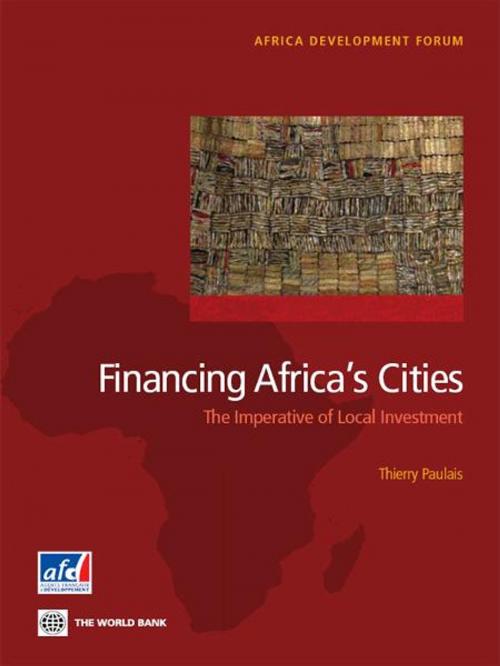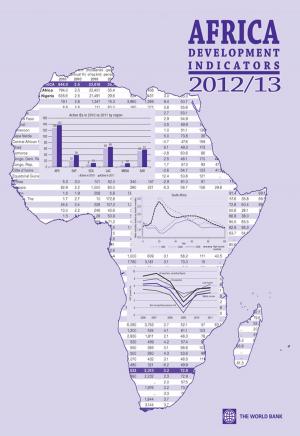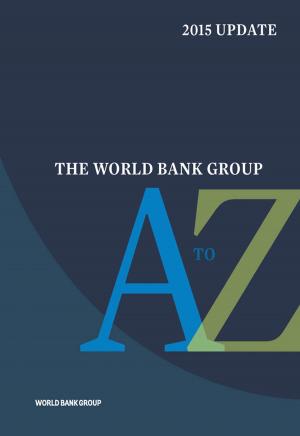Financing Africa's Cities
The Imperative of Local Investment
Business & Finance, Economics, Urban & Regional, Economic Development, Finance & Investing, Finance| Author: | Thierry Paulais | ISBN: | 9780821389485 |
| Publisher: | World Bank Publications | Publication: | July 5, 2012 |
| Imprint: | Language: | English |
| Author: | Thierry Paulais |
| ISBN: | 9780821389485 |
| Publisher: | World Bank Publications |
| Publication: | July 5, 2012 |
| Imprint: | |
| Language: | English |
This volume addresses the issues of financing urban growth of the African continent -- which has the highest urban growth rate on the planet -- in the next decades. Considerable investment will be needed to sustain this level of growth and to clear up accumulated backlogs. At the same time, decentralization has resulted in increased responsibilities for local government; but in most cases, institutional reforms were carried out without the transfer of a sufficient level of resources, and local capacities in governance and project management are weak. Which mechanisms will finance these extensive needs, and how will African local governments meet these needs? Specifics on how to finance African cities have not been studied. The actual scale of this market has not been fully grasped. A systemic approach to this market is difficult because of its diversity (country size; institutional context; characteristics of urban network; availability of capital market, currency, etc.) and a lack of data. Donors’ assistance methods in the sector are disparate, marked by disputes between different schools of thought; special-purpose vehicles created by donors operate according to a variety of methods and with wide-ranging and sparsely disseminated results. What is the best way to transform these systems, often antiquated in many respects, into modern financing systems that facilitate access to domestic markets, mobilize local savings and reinforce local government autonomy? There is no single answer to this question in regard to such a variety of institutional and economic contexts. The main objective of the study is to clarify the debates and to enlighten the choices of African decision-makers at local and national level.
This volume addresses the issues of financing urban growth of the African continent -- which has the highest urban growth rate on the planet -- in the next decades. Considerable investment will be needed to sustain this level of growth and to clear up accumulated backlogs. At the same time, decentralization has resulted in increased responsibilities for local government; but in most cases, institutional reforms were carried out without the transfer of a sufficient level of resources, and local capacities in governance and project management are weak. Which mechanisms will finance these extensive needs, and how will African local governments meet these needs? Specifics on how to finance African cities have not been studied. The actual scale of this market has not been fully grasped. A systemic approach to this market is difficult because of its diversity (country size; institutional context; characteristics of urban network; availability of capital market, currency, etc.) and a lack of data. Donors’ assistance methods in the sector are disparate, marked by disputes between different schools of thought; special-purpose vehicles created by donors operate according to a variety of methods and with wide-ranging and sparsely disseminated results. What is the best way to transform these systems, often antiquated in many respects, into modern financing systems that facilitate access to domestic markets, mobilize local savings and reinforce local government autonomy? There is no single answer to this question in regard to such a variety of institutional and economic contexts. The main objective of the study is to clarify the debates and to enlighten the choices of African decision-makers at local and national level.















